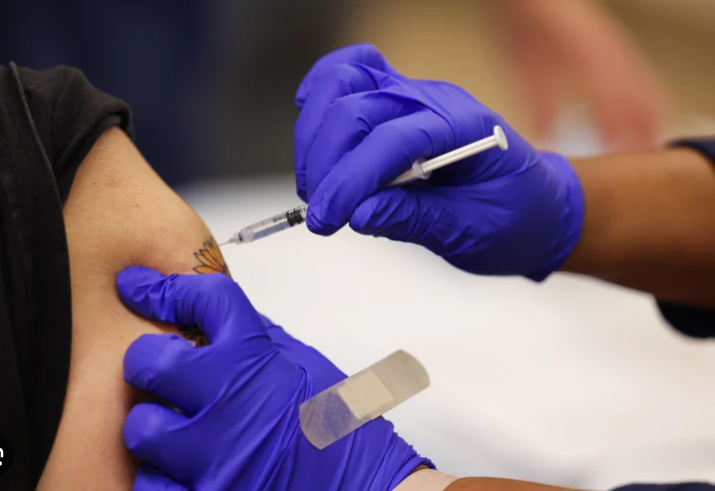When receiving vaccinations, swapping arms between shots may result in a higher level of immunity than receiving the shots in the same arm of Vaccine Effectiveness
This is the conclusion drawn from a recent study that examined the first two COVID vaccination doses. Comparing those who received both shots in the same arm, those who switched arms showed a marginally higher level of immunity. The researchers pointed out that for people who react poorly to vaccinations, even a tiny boost could be important.
The results may not be significant for COVID vaccinations, as millions of Americans received many doses during the pandemic, but the researchers noted that they might have ramifications for all multi-dose vaccinations, including child immunizations. The New York Times was informed by lead researcher Dr. Marcel Curlin, an infectious disease specialist at Oregon Health & Science University. “I’m not making recommendations at this point, because we need to understand this a lot better.” However, he continued, “All else being equal, we ought to consider switching up the arms.”
Also read-A Dental Group Releases New Guidelines For Adults And Teens To Control Their Dental Pain
Vaccine Effectiveness

Vaccine Effectiveness
But according to Dr. Jennifer Gommerman, chief of the immunology department at the University of Toronto, switching arms may not be as beneficial as prolonging the time between doses—by three to four months, as was done in Canada for COVID shots. In any case, it’s worthwhile learning about all of these tactics because, as she put it, “anything that helps their immune responses is worth doing” for immunocompromised individuals.
Vaccine Effectiveness

Vaccine Effectiveness
The participants were randomized to get the second dose in the same arm as the first dose or in the opposite arm. Switching the arms increased blood antibody levels by as much as fourfold, the scientists found. The immune response was also stronger against both the original coronavirus and the Omicron variant. “It’s a consistent, statistically significant effect; it’s pretty sizable; and it seems to be quite durable,” Curlin said.
Vaccine Effectiveness

Vaccine Effectiveness
Frequently asked questions
How can I prevent COVID and influenza?
Make sure you cough or sneeze into your elbow or a tissue, discard the tissue, and wash your hands right away. Steer clear of individuals who are confirmed or suspected of having the flu, COVID-19, or RSV, especially in crowded indoor areas. You might want to think about donning a mask.
What is the treatment for Corona flu?
The majority of adults with mild cases of COVID-19 can treat their symptoms similarly to how they would treat a seasonal flu: stay home and rest, take ibuprofen or paracetamol for fever and pain relief, stay hydrated, and use cough medicine if necessary. One of the most prevalent COVID-19 symptoms is fatigue.
What are the symptoms of the flu (RSV) and COVID-19?
Fever, coughing, and shortness of breath are common symptoms of COVID-19, respiratory syncytial virus (RSV), and influenza (flu). It can be challenging to differentiate between respiratory virus-related illnesses due to their similar symptoms.
Can you have a cold and COVID at the same time?
Respiratory viruses can sometimes infect you in pairs, so COVID-19 can also accompany a cold or the flu. It is known as “coinfection,” but as far as current scientific understanding allows, it is an uncommon occurrence.
What antiviral is used for the flu?
There are four FDA-approved influenza antiviral drugs recommended by the CDC for use against recently circulating influenza viruses.
- Rapivab (peramivir)
- Relenza (zanamivir)
- Tamiflu (oseltamivir phosphate, also available as generic)
- Xofluza (baloxavir marboxil)
Also read-US Health Officials Ask Major Cities To Use Indoor Masks During The “Triple Demic”
images source: Google
Disclaimer: The opinions and suggestions expressed in this article are solely those of the individual analysts. These are not the opinions of HNN. For more, please consult with your doctor




































